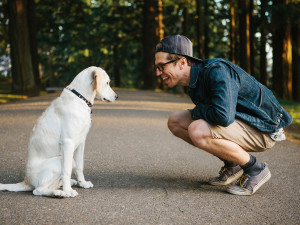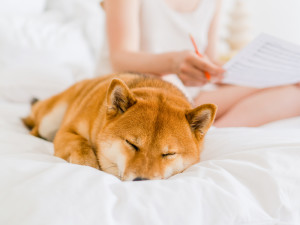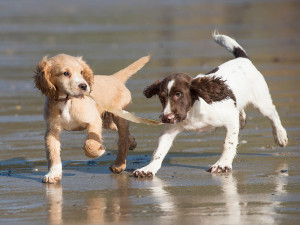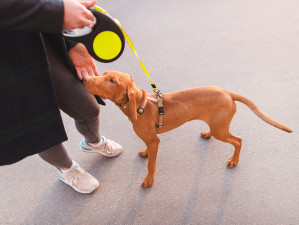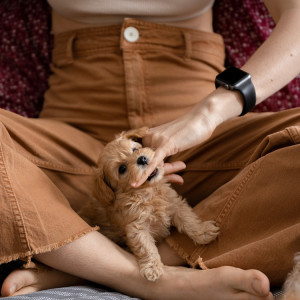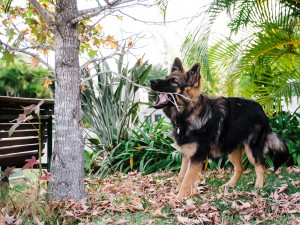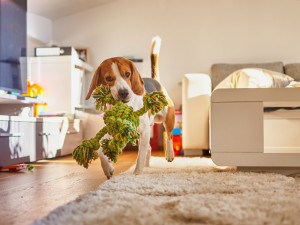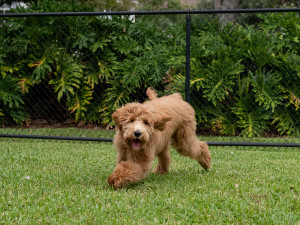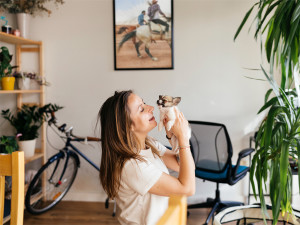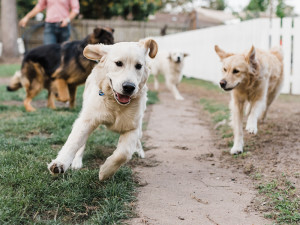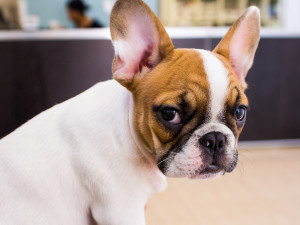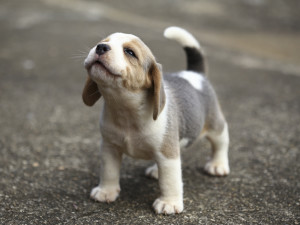5 Development Stages You Should Know When You Get a Puppy
It’s like What to Expect When You’re Expecting, except add “four little paws to run around your house” to the title.
Puppies are cute bundles of joy who develop into loyal, loving companions. But they don’t get there overnight; they need guidance through their constant growth and change. Maybe you’re considering if puppy parenthood is right for you. Or maybe you’re in the thick of it and wondering what comes next.
Trust us: We know not every day is going to be easy, and you might even get a case of the puppy blues. But knowing what to look out for can help ease some of those growing pains. Here are some general guidelines for what to expect and what to do in each stage of puppy development.
The first 48 hours
The First 48. Not the TV show, but critical all the same. This is the time period when puppies get colostrum during nursing. Colostrum is the first milk that mothers produce after giving birth. It is nutrient-dense and high in antibodies that help fight infections. This provides a type of temporary immunity that mimics the mother’s immune system.
Puppies aren’t born with fully functioning immune systems, and the antibodies in colostrum give an essential boost in protection to help puppies hit the ground running. Colostrum in the milk is at its highest levels during the first 12 hours after birth. While it’s still produced after the first 48 hours, the concentration decreases significantly each day. Can puppies survive without getting colostrum? Some can, but they are at a severe disadvantage. Puppies who do not receive colostrum early on are at risk of succumbing to common infections.
Neonatal stage: Zero to two weeks
What to expect at neonatal stage
At this stage of the game, expect puppies to spend their time eating, sleeping, and snuggling. Their eyes and ears are closed, so they use scent and feel to navigate. Puppies nurse frequently — every two to four hours — and spend most of the rest of the day sleeping. They are dependent on their mothers for warmth, food, and even stimulation to urinate and defecate.
What to do at neonatal stage
As a pet parent, it’s important to keep a watchful eye at this stage. Your vet may monitor their weight daily to make sure they are getting enough nutrition, but this isn’t always necessary. Seek veterinary advice if the puppy’s mom is resistant to letting her pups nurse or if any dog seems to be struggling in any way. Otherwise, keep your handling gentle and to a minimum.
Transitional stage: One to four weeks
What to expect during the transitional stage
This is when puppies start looking more like dogs and less like cute, fuzzy little worms. Along with this growth comes more strength and ability. Eyes and ears slowly open. Legs become strong enough for walking. Teeth make an appearance. Peeing and pooping happens without their mom’s help (definitely an accomplishment). Tiny barks are heard. Littermates become playmates. Tails may even wag a little. Puppies now have the motivation and ability to explore and wander farther away from mom.
What to do during the transitional stage
Increasing your handling of the puppy will get them used to human touch, but be mindful to keep them in a protected environment where they will not be exposed to disease. The weaning process should start when puppies are about three or four weeks old. Offer soft, mushy food to start the transition to solid meals. If puppy-pad training will be needed, now is a good time to start introducing the appropriate place to go pee and poop.
Socialization stage: Four to 16 weeks
What to expect during socialization
This is the pivotal stage for puppies to form lasting attachments to people, so socialization is crucial. As they’re weaning (this should be finished by eight weeks old), they begin exploring their environment and rapidly experience new sights, smells, sounds, and sensations. These can be new people, grass, thunder, vacuum cleaners, car rides, a dog crate, or whatever. Puppies not only learn about their environment, but they are also now able to learn basic training cues. Later in this stage, adult teeth begin erupting and puppies become mouthy as hell.
Puppies in this stage are very curious and start to develop opinions on what they do and don’t like. With all this excitement and exploration, puppies begin figuring out how to deal with encounters they find unpleasant. Often, the go-to response is fear.
What to do during socialization
For puppy parents, positive reinforcement is key. Praise your puppy for good behaviors and reassure them in new situations. Provide safe chew toys for teething. Be consistent with potty training and provide lots of potty breaks with positive reinforcement. Unfortunately, this may include getting up in the middle of the night due to their small bladders.
Introduce them to new people and friendly pets, but keep interactions in a safe, controlled environment. Remember, puppy immune systems are still immature, and you should take extra care not to expose them to contagious diseases. So, maybe have a playdate in your home with a fully vaccinated dog instead of meeting unknown dogs in parks or pet stores.
Consult your veterinarian about a preventative care plan. This is the stage when puppies should get multiple rounds of vaccines, receive dewormers, and start heartworm prevention. They should be transitioned to an appropriate puppy diet formulated to support rapid growth. Special request from a vet: Touch your puppy’s paws and ears as a part of play to teach them that it’s not a bad thing. This can make vet visits and grooming safer and less stressful throughout their lives.
Juvenile stage: Four to six months
What to expect during the juvenile stage
This is prime teething time for many puppies. All adult teeth should come in by the time they’re seven months old. In the meantime, they feel the need to chew. At this stage, puppies are full of explosive energy — but are also quick to nap. Puppies can become confident in basic cues and start to develop habits (good or bad).
What to do during the juvenile stage
Pet parents should focus on reinforcing good behaviors and routines. Because puppy teeth want to be on everything, spend time puppy-proofing your pad. Provide plenty of chew toys and direct their little mouths to toys and away from shoes, fingers, and other undesirable objects. This may be a good time to talk to your vet about your spay/neuter plans. Recommendations may vary depending on the sex of the puppy and expected size.
Adolescent stage: Six to 18 Months
What to expect
Pups in this stage are developing fast and may have over-sized paws, extra-floppy ears, and gangly limbs. They may be a little clumsy as they adjust to their size. Behavior issues can pop up as puppies become bolder and start to test boundaries. This is also the stage when most breeds will reach sexual maturity, so they are likely to display hormone-driven behaviors, such as urine marking, humping, aggression, or attempting to roam.
What to do
It’s easy to be fooled into thinking that once your pup is a year old the puppy phase is over (yeah, right). Continue to keep a watchful eye on potential dangers in and out of the home. While your dog may be getting the hang of things, they’re not immune to finding trouble: chewing inappropriate objects or getting into scuffles are definitely on that list. Continue providing lots of opportunities for socialization, playtime, and bonding.
What’s the hardest puppy stage?
Adolescence is often considered the most challenging phase of puppyhood. Puppies start to display some maturity, but they still require a lot of attention and are oftentimes big enough to do real damage. As puppies gain a little independence, they can be hard-headed, test boundaries, and use aggression to show dominance. They may also be wrestling with puberty hormones. Teenage dogs aren’t lost causes; just stay consistent, and they’ll continue to learn.
What’s the most critical puppy stage?
Outside of the short window of time when puppies can get colostrum, the socialization period is the most critical. Puppy parents must strike a delicate balance between exposing their dogs to new people and animals and taking extra precautions to not expose them to disease before they are fully vaccinated. This is the stage where puppies can develop long-lasting positive associations or phobias that are difficult to overcome.
Puppy parenting, while rewarding, is hard work. It’s awesome to watch a little pup grow up to be a confident, healthy companion. But not everyone is up to the challenge, and that’s totally OK. There are plenty of more mature dogs available for adoption for those who want companionship without all the puppy stuff.


